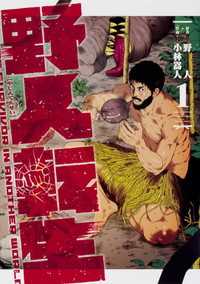Full Description
This volume provides new, groundbreaking views of Jewish life in various countries of the pro-Soviet bloc from the end of the Second World War until the collapse of Communism in late 1989. The authors, twelve leading historians and anthropologists from Europe, Israel and the United States, look at the experience of Jews under Communism by digging beyond formal state policy and instead examining the ways in which Jews creatively seized opportunities to develop and express their identities, religious and secular, even under great duress. The volume shifts the focus from Jews being objects of Communist state policy (and from anti-Jewish prejudices in Communist societies) to the agency of Jews and their creativity in Communist Europe after the Holocaust. The examination of Jewish history from a transnational vantage point challenges a dominant strand in history writing today, by showing instead the wide variety of Jewish experiences in law, traditions and institutional frameworks as conceived from one Communist country to another and even within a single country, such as Poland, Czechoslovakia, Hungary, East Germany, and the Soviet Union. By focusing on networks across east-central Europe and beyond and on the forms of identity open to Jews in this important period, the volume begins a crucial rethinking of social and cultural life under Communist regimes.
Contents
Contents
Jewish Lives under Communism
Kateřina ČapkovÁ, Kamil Kijek, and Stephan Stach
Periphery and Center
A New Life? The pre-Holocaust Past and post-Holocaust Present in the Life of Jewish Community of DzierżoniÓw, Lower Silesia, 1945-50
Kamil Kijek
Erased from History: Jewish Migrants in Postwar Czechoslovakia
Kateřina ČapkovÁ
On the Borders of Legality: Connections between Traditional Culture and the Informal Economy in Jewish Life in the Soviet Provinces
Valery Dymshits
Perceptions of Jewishness
From Friends to Enemies? The Soviet State and Its Jews in the Aftermath of the Holocaust
Diana Dumitru
'I was not like Everybody Else': Soviet Jewish Doctors remember the Doctor's Plot
Anna Shternshis
'After Auschwitz you must take your origin seriously': Perceptions of Jewishness among Communists of Jewish origin in the early German Democratic Republic
Anna Koch
Jewish in Soviet Birobidzhan: Between Stigma and Cynicism
Agata Maksimowska
Transnationalism
An Alternative World: Jews in the German Democratic Republic, Their Transnational Networks, and a Global Jewish Communist Community
David Shneer
Soviet Yiddish Cultural Diplomacy in the Post-Stalinist 1950s
Gennady Estraikh
Family Discourse, Migrations, and Nation-building in Poland and Israel in the Late 1950s
Marcos Silber
Dissidents
Three Jewish Social Networks: A (Non-)Encounter in Malakhovka
Galina Zelenina
The Opposition of the Opposition: New Jewish Identities in the Illegal Underground Public Sphere in Late Communist Hungary
Kata Bohus
Acknowledgements
Index
Notes on Contributors








